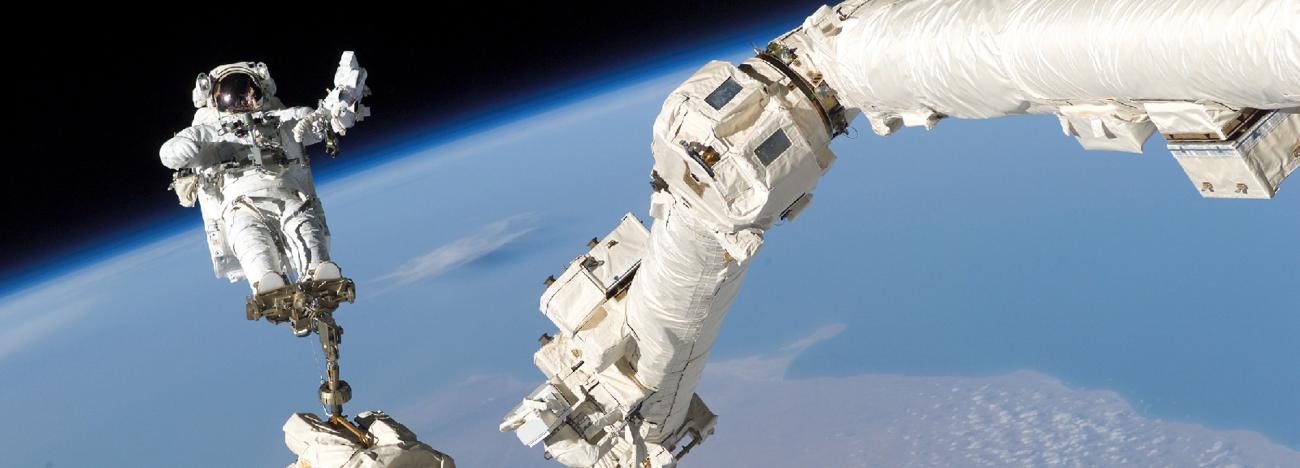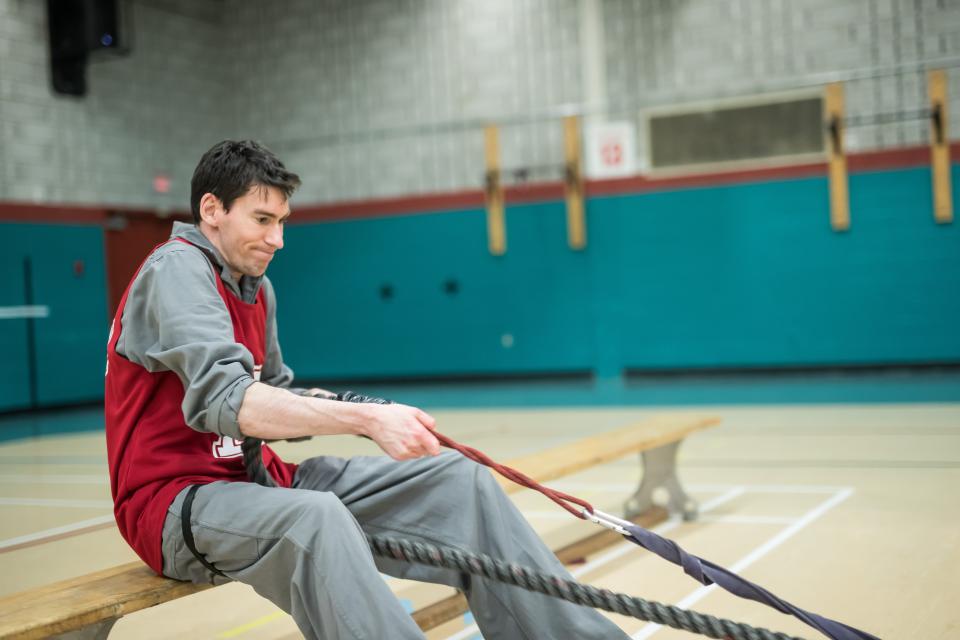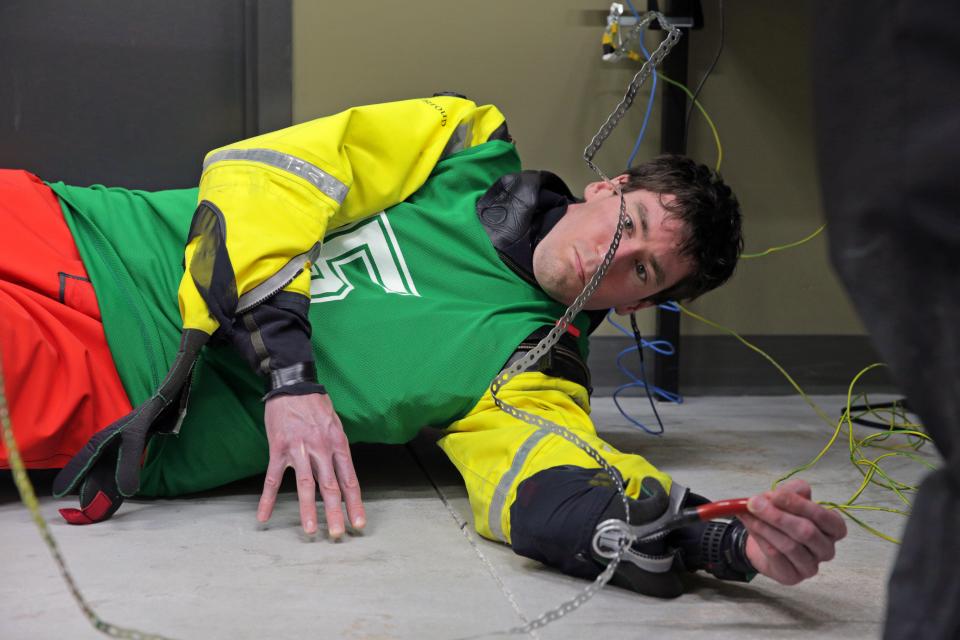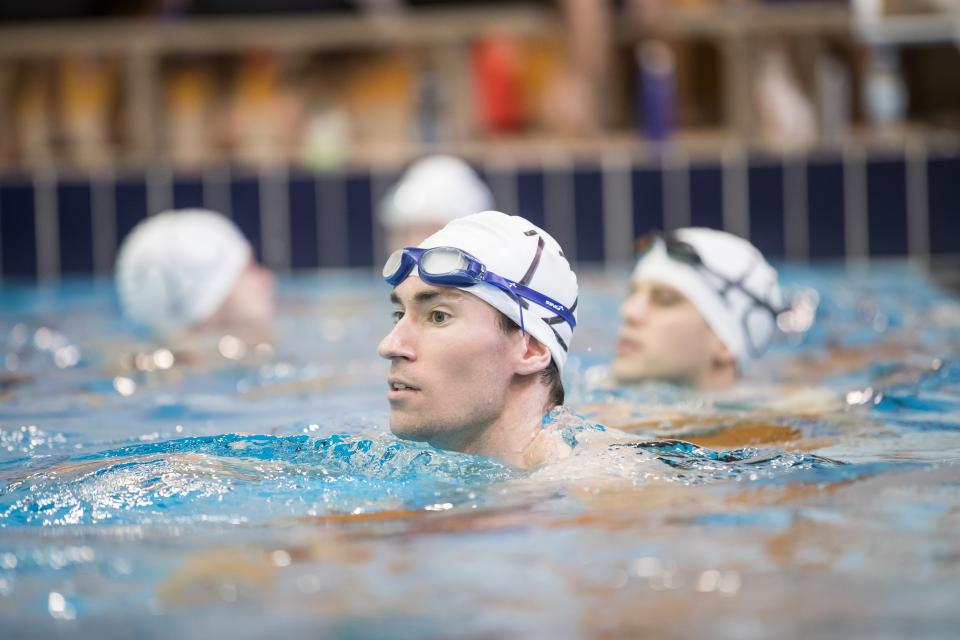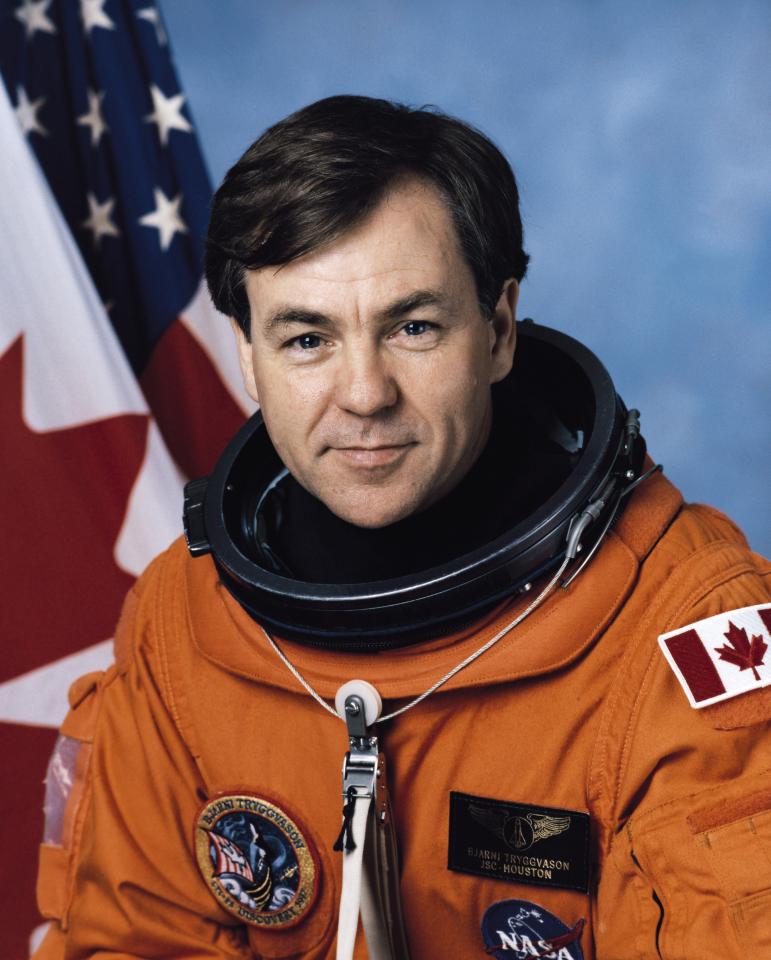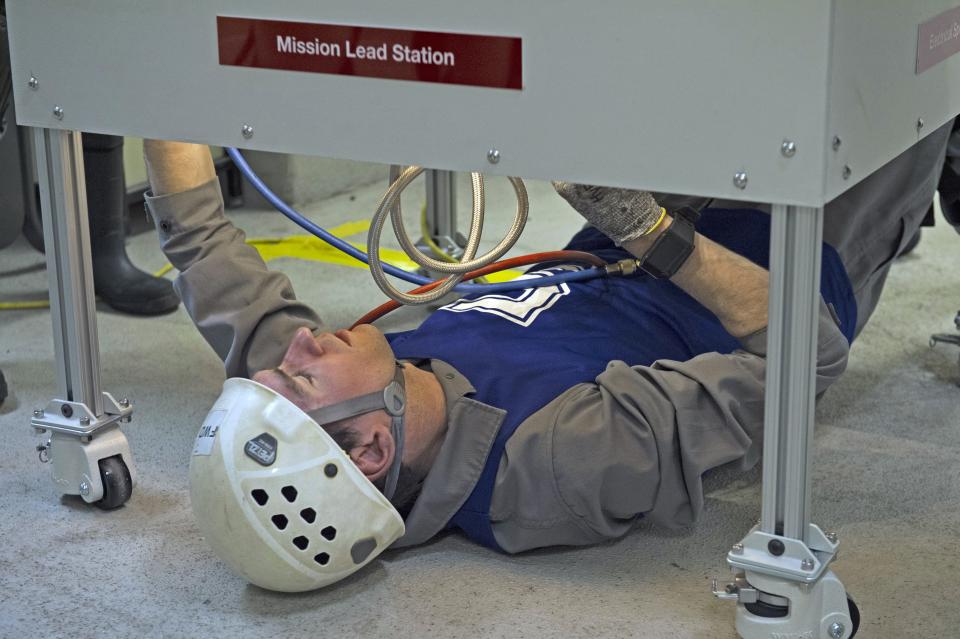Space Race
When Gavin Tansley was in grade 12, a perceptive counsellor set him up with an unusual job in the school’s work placement program. The program, which was designed to give non‑academic high school seniors a taste of the various trades available at post‑secondary schools around the province, was not intended for high achievers like Tansley. But the counsellor saw the budding scientist in him and massaged the rules a bit to set up a placement with UBC researcher Dr. Cheryl Wellington (professor of pathology and laboratory medicine in the Djavad Mowafaghian Centre for Brain Health), who gave him a research project all his own.
“I got to look at cholesterol transport,” he says, “and how it might influence the formation of the protein plaque responsible for Alzheimer’s disease. It was an amazing opportunity for me, and I even got my first author publication and was a co‑author on a couple of others.”
The experience, he says, convinced him that his career should always be focused on creating new knowledge. “I wasn’t particularly brilliant,” he claims, “but I was really excited by that experience.” It also made him a lifelong fan of UBC. “Having faculty like Dr. Wellington, willing to take a risk on a curious high school student and offer that kind of opportunity is what makes UBC special.” It also convinced him to apply to UBC when he graduated from high school.
He started a bachelor’s degree in cell biology and genetics, then transferred to medicine after his third year – a dream he’d had since childhood. During his MD training he spent time in BC’s north working in remote areas, and discovered his research passion. The challenges of delivering medicine in centres far away from cities – what he calls austere, remote environments – excited him because of the opportunities for research but also because his work could cause positive change.
“It’s much different providing medical services in places where they don’t have the kind of resources we have in urban centres,” he says. “You have to learn to be adaptable and inventive. My current work as a surgeon in trauma care links to that because emergency medicine sometimes requires creative solutions to immediate problems. You use the resources at hand.”
The trick, he says, is to balance his passion for research and discovering new knowledge with his love for the practice of medicine. “I will always do both.”
Currently, Tansley is working as a trauma surgeon in Halifax, doing his residency through Dalhousie. His career path is fairly clear: research into the area of medicine in austere environments and perhaps even a period of time with Médecins sans Frontiéres.
Unless, of course, he becomes Canada’s next astronaut.
His love of research and medicine notwithstanding, Tansley’s real siren call has always been the stars. “I’ve wanted to be an astronaut since I was a little kid,” he says. “All through school I’d seek out books and magazines about space and astronauts.” But he kept his interest under wraps in high school and after. “I didn’t want to be that kid in school or that adult working a normal job who was still talking about being an astronaut,” he laughs.
His love of research and medicine notwithstanding, Tansley’s real siren call has always been the stars.
He thought of applying when the Canadian Space Agency (CSA) put out a call for Canada’s next astronaut in 2009, but he didn’t have the required professional experience – or his MD. He was sure he’d missed his chance, as the call for applications is a rare occurrence. But when the CSA put out another call in June 2016, he knew his moment had come. Almost 4,000 Canadians applied for the spot and, to his great joy, he was one of 72 selected to enter the first round of testing.
The selection process is a complex one. Candidates must undergo many series of tests to determine physical endurance, emotional stability and intellectual ability. Though CSA prefers candidates to not discuss the nature of these tests, Tansley did allow that they were difficult and draining. But did he feel he performed well?
“Meeting the other candidates is a great way to be humbled,” he says. “You don’t leave one of these testing events feeling good about yourself. You’re being compared to the top tier. It’s an amazing group of people. They could pick one of the names out of a hat and get a spectacular astronaut.”
What are the requirements for becoming an astronaut?
Source: Canadian Space Agency
Who can apply? Persons residing in Canada and Canadian citizens residing abroad can apply. Preference will be given to Canadian citizens.
In which language/s do they need to be proficient? Either French or English. Proficiency in both official languages of Canada is an asset but not a requirement. However, Canadian Space Agency astronauts are based at NASA in Houston, Texas, where the working language is English. Moreover, the two official languages aboard the International Space Station are English and Russian.
Which university degree do they need? Candidates must have a bachelor’s degree from a recognized university in engineering or science (eg: physics, chemistry, biology, geology, mathematics, computer science) or a doctorate in medicine or dentistry.
How many years of professional experience should they have? Candidates must have at least three years of relevant professional experience OR be licenced to practise medicine in Canada. A master’s degree is equivalent to one year of professional experience, and a doctorate is equivalent to three years of professional experience.
Which qualities and skills are required? Motivation, resourcefulness and teamwork are all important qualities required to be part of the CSA’s astronaut corps. Judgment, integrity, reasoning, public speaking and the ability to synthesize and communicate using plain language are also necessary.
[/sidebar]
In spite of Tansley’s self‑doubts, he recently survived the agency’s latest winnowing exercise to become one of the remaining 32 candidates. A decision of the final choice will be made this summer.
“Being a trauma surgeon by definition means I have to assess life-threatening situations on the spot and come up with solutions quickly. I think that’s why they value that training.”
His medical background, he feels, has little to do with his success so far. “That’s not why I was selected,” he says. “It’s less about my particular skill set and more about the level of training I’ve received. My research training gives me a very methodical approach to problems. And, being a trauma surgeon by definition means I have to assess life‑threatening situations on the spot and come up with solutions quickly. I think that’s why they value that training.”
If he is chosen to be Canada’s next astronaut, he won’t necessarily be doing medical research. His primary job will be as an operator. Scientists on the ground will have experiments they want to conduct on the space station, and the astronauts become a set of skilled hands that can conduct those experiments appropriately and professionally. For that reason, those chosen have to be generalists with a passion for science for the sake of science. Which is a good definition of Gavin Tansley.
In spite of the more sober requirements of the job of astronaut, a brief perusal of the candidates’ resumes would seem to indicate that they, as individuals, are big risk takers. Rock climbers, sky divers, mountaineers, and crazies who go scuba diving in shark infested waters. Tansley himself is a dedicated rock climber and mountaineer. But he suggests that “risk” isn’t a motivating factor.
“I’m not a risk‑taker,” he says. “I don’t think risk takers make it very far in those kinds of activities. If you’re a rock climber and a risk taker, you’re probably going to get hurt. I see myself as a risk avoider with a huge passion for adventure. Adventure takes you to these places and requires certain skills, but you’ve got to have a methodical, very calculated approach. You have to have the experience to do something safely. People who aspire to be an astronaut have that desire for exploration and adventure in common. It’s not about risk; it’s about adventure. And, at the same time, you’re working at the very top of human endeavour. That’s really attractive to a lot of people, me included, so we assume the risk.”
But becoming an astronaut means he will have to give up being a surgeon. He will have to move to Houston, Texas, and begin years of specialty training. He’s in his early 30s now, and, typically, astronauts retire in their mid 50s. After 20 years, he’ll be hopelessly behind as a medical practitioner. Is he sure the sacrifice is worth it?
“I’ve wanted to be a physician all my life,” says Tansley. “All my training, all my focus has been on that goal. I wouldn’t give it up for anything, except for the chance to be an astronaut. I’d do it in a heartbeat.”
Gavin Tansley lives with his wife in Halifax, Nova Scotia.
Update
Recently we learned that Gavin Tansley was unfortunately not one of the 17 candidates to move on to the final selection stages. “Although it is not happy news to hear, I look back on the experience so fondly that I’m having a hard time feeling disappointed,” he says. “I met truly incredible people and experienced things I would not have had the chance to experience otherwise. I will now press on through my surgical training and continue doing the things I love doing. I can only hope that one day there will be another call and at that point I’ll be a better candidate.” We’ll be rooting for him when he tries again.

























